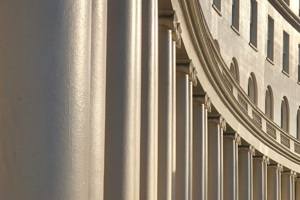Time to hang up the net curtains? Visual Intrusion CAN constitute a private nuisance
Few legal cases have captured the public imagination as much as the battle between the Tate Modern gallery and neighbouring flat-owners, whereby the latter sought an injunction restraining the former, and the half-a-million annual visitors to its viewing gallery, from viewing their flats just 34 metres away.
In this long-awaited and eagerly anticipated judgment, the Supreme Court (with a narrow three-to-two majority) overturned the findings of the lower courts – finding that visual intrusion can constitute a private nuisance. Their decision, which explored the law of nuisance, confirmed there is no theoretical limit as to what might form the basis of a claim in nuisance.
The Court focused on whether the Tate’s use of its land was a “common and ordinary use”. They found that the Tate’s use of the land was exceptional, assessed by reference to the character of the locality. They also held that the use of the viewing platform caused substantial interference with the ordinary use and enjoyment of the flat owners’ properties.
It did not matter that the flat owners bought flats in London with floor-to-ceiling windows or that they could have taken measures to mitigate the intrusion (for instance, by installing net curtains as the trial judge suggested) as it is not for the victim to take steps to reduce the impact of the nuisance.
The full ramifications of this decision remain to be seen, and in particular, whether other property owners will look to bring similar claims on the grounds of nuisance for visual intrusion. Given the extreme facts of this case – a point made clear in the judgment – it would be surprising if such cases become commonplace. The most fertile ground for such claims, as acknowledged by the Supreme Court, could be around CCTV or being photographed or filmed from a neighbouring property but we will have to wait and see how things develop.
“Looking ahead, it will be interesting to see whether this case triggers more property owners to make similar claims where they feel they are being overlooked. However, the supreme court has made it clear that the circumstances where the new law will be applied will be rare but did highlight issues around CCTV and sharing of images from cameraphones on social media,” Souter said.









